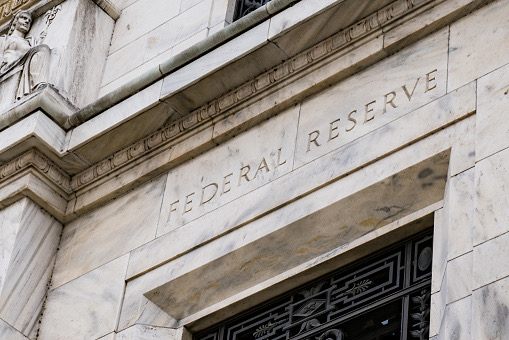When investors see the markets go down, they certainly feel the pain of losing their hard-earned money but many may not fully comprehend the reasons for the selloff.
Markets may sell off for a variety of reasons, but the recent January carnage is thought by many to be caused by the upcoming actions expected to be taken by our central bank, the Federal Reserve (FEDS).
The term “taper” has been thrown about in the news media and although economists and market professionals understand what taper means, few mom and pop investors do, and the news media seemingly doesn’t even attempt to explain it.
In the normal course of steering the economy, which in itself is hotly debated as to whether an economy can be actually steered, the Federal Reserve, in times of economic stress, will buy debt from a variety of financial institutions such as banks and similar money centers.
This debt might include U.S. government debt such as treasuries, bills, and notes, mortgage-backed securities (things like home loans and similar paper), and whatever else they deem appropriate and legal to do so. The “legal” part has been a bone of contention and another hotly debated subject among FED policy detractors but that is a story for another day.
As stress increases in the financial system for whatever reason, the Fed starts buying the fore-mentioned debt paper in an operation known as “Quantitative Easing” (QE).
Although QE was relatively rare and only practiced during extreme emergency situations in the economy in the past, it has been increasing in frequency and quantity starting around the mid-1990s and accelerating every decade.
The current decade has the most quantitative easing ever witnessed. Whereas the original QE programs may have encompassed only a few hundred million dollars, today’s amounts of 80 to 100 billion a month can be common.
The elephant in the room is when the feds see increasing inflation, they have to start to scale back on QE, as QE can be a major cause of inflation.
So fast forward to today and the FEDS find themselves in a difficult situation.
The ongoing stressors on the financial system caused by the Covid virus and its subsequent shutdowns, the Fed, who was buying hundreds of billions of dollars worth of assets a month in QE, must now, even in the face of a falling market, scale back QE because of worsening inflation. This scaling back of QE is what is meant when they mention the word “taper”.
In simple English, the FEDS will start to slow down QE in an attempt to slow the inflationary fires we are witnessing now. Keep in mind, in the past when the markets were stressed, the FEDS would normally increase QE. Now it has to decrease it.
Hence they now find themselves in somewhat of a predicament: Try and buoy a falling stock market by more QE, and they will foster more inflation. Cut back on QE to try and curtail inflation, and the markets may fall hard.
Making matters even more precarious, the FEDS must also begin to raise interest rates, which is the second part of the inflation remedy.
The QE tapering, coupled with the increase in interest rates, may put even more stress on the markets.
Market participants realize that inflation is now bad enough that the FED has to address it, and that as bad as a falling market can be, it is a secondary concern next to inflation. The FEDS know inflation is much more serious and can do much more damage to an economy than a falling stock market.
Only time will tell if the FEDS QE tapering and interest rate increases will continue to hammer the markets.
For now, and at least in the month of January 2022, it appears that the fear of these actions by the Federal Reserve is indeed putting the brakes on stocks.
This article is opinion only of Marc Cuniberti, and may not represent those of this news media, and should not be construed as investment advice nor represents the opinion of any bank, investment or advisory firm. Neither Money Management Radio (“Money Matters”) nor Bay Area Process receive, control, access or monitor client funds, accounts, or portfolios. Contact Marc at (530)559-1214.


